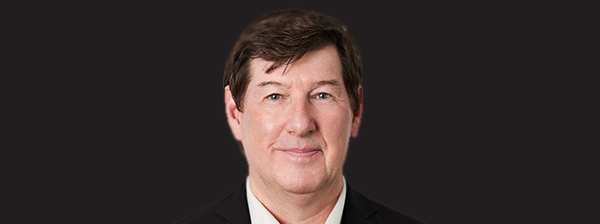
By Peter McInnis
This summer, CAUT joined over 1,200 delegates and observers at the Education International 10th World Congress in Buenos Aires, Argentina. Education International (EI) is a Brussels-based federation of 383 member organizations, representing 32 million educators across 178 countries. CAUT has maintained a close working relationship with EI and many of its member organizations, especially those supporting higher education.
The EI World Congress meets on a five-year cycle, and gathering in Argentina was meaningful as that nation, under the neoliberal shock doctrine of President Javier Milei, is currently experiencing intense pressure to undermine access to publicly funded education. Education International’s campaign, Go Public! Fund Education is an effective riposte to such anti-democratic policies.
As Congress attendees gathered for a mass photograph and unfurled a banner demanding “Si a la Escuela Publica,” it was a poignant reminder that Argentina suffered through a history of violent repression by military dictators who directly attacked teachers and intellectuals. Argentinian universities have memorials to the desaparecidos, the thousands of disappeared during the “dirty war” of the 1970s to 1980s.
Congress delegates discussed the recent release of the United Nations Secretary-General’s High-Level Panel on the Teaching Profession, which offers important guidance on ensuring the principles of fair pay, job security, collective bargaining rights, consultation on new technology, equity and inclusion for teaching staff at all levels. This promotion of democracy through education has long been a focus for CAUT. Our association was integral to the preparation of the 1997 Recommendation concerning the Status of Higher-Education Teaching Personnel, which set forth key values for the promulgation of academic freedom in higher education.
At the EI World Congress, CAUT proposed the resolution, Organizing Against the Political and Ideological Attacks on Academic Freedom and Institutional Autonomy. This initiative was supported by the University and College Union (United Kingdom) and the American Federation of Teachers. Other delegations spoke in favour of the resolution, and Congress passed it unanimously.
CAUT continues to demonstrate leadership in championing public education and the professional rights of faculty to pursue research and teaching without interference or reprisal from politicians or institutional management.
Recent events in Canada and internationally have highlighted the contested principles of academic freedom and institutional autonomy. Universities and colleges have been subjected to a range of threats from revoked funding to legislative manoeuvres to eliminate free speech and tenure. In far too many instances, senior administrators, instead of vigorously defending core principles, readily capitulated to restrictive dictates. Indeed, institutions have jumped into line to obey in advance of legislated measures.
Despite the current distemper of our times, our international colleagues praised the actions of CAUT members to actively support academic freedom. They also reminded us that in most instances their rights were far more truncated than those held by Canadians.
To this end, we must not be complacent that our professional practices will remain unscathed by efforts to push us backward to a time when faculty had little recourse but to follow the directives of employers and governments.
This is especially true at a moment when engaging in broader humanitarian and political debate is now subject to harsh censorship. The CAUT Statement on Academic Freedom in Times of Conflict makes clear the heightened stakes of this fraught contemporary moment: “Academic freedom, like all expressive freedoms, is particularly vulnerable during periods of war, conflict, and social unrest. The widespread dismissals of controversial professors and subsequent constraints on academic discourse during and after the two world wars of the last century serve as a warning that politically motivated restrictions on academic expression must never be countenanced.”
The opportunity to meet and discuss the importance of education and the advancement of measures to defend the professional rights of teachers raises several issues. It remains deeply troubling that teachers are exposed to harassment and their students are subject to chronic underfunding. Despite multiple barriers, educators at all levels remain determined to persist. The goal of a progressive learning environment to advance democracy is of global importance.
CAUT is proud to defend the international objectives of quality education for all, but major challenges remain, and we must share the collective obligation to pursue this cause tenaciously.